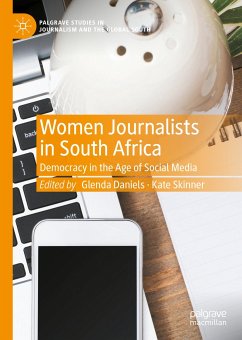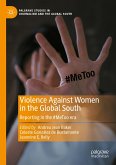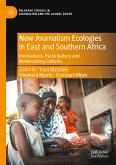-Kathleen Magrobi, Quote This Woman+, Johannesburg, SA.
"An intersectional approach recognises that the challenges facing the media (misinformation, disinformation, sustainability issues, ongoing technological disruption) have a gendered impact. This critical book, with its feminist approach, not only puts these issues on the agenda but makes the clarion call that without women's voices, our stories are not truly told and our media not truly free."
-Paula Fray, fraycollege CEO, Johannesburg, SA.
This edited collection examines women journalists' experiences and obstacles in South Africa's (SA) democracy. They exercise power, and add a vital diversity, but they are routinely harassed in the online social media space of big tech companies such as Twitter and Facebook by populist and corrupt politicians and their supporters. Using SA as the case study, this book examines attempts to curb women journalists' freedom combining theory and first-hand accounts. The target audience for the book includes scholars of political philosophy, gender, media, communications, NGOs, media freedom activists and journalists.
Glenda Daniels is Associate Professor in Media Studies at the University of the Witwatersrand, SA. She is author of Power and Loss in South African Journalism: news in the age of social media (2020); Fight for Democracy: the ANC and media in South Africa (2012) and co-author of Glass Ceilings: women in South African Media Houses, 2018 (2018).
¿Kate Skinner is Executive Director of the Association for Independent Publishers, SA. She has been a media freedom activist, researcher and policy analyst for the last 25 years and has worked in the unions, NGOs, government and the media industry to build a diverse, independent media sector.
Dieser Download kann aus rechtlichen Gründen nur mit Rechnungsadresse in A, B, BG, CY, CZ, D, DK, EW, E, FIN, F, GR, HR, H, IRL, I, LT, L, LR, M, NL, PL, P, R, S, SLO, SK ausgeliefert werden.









